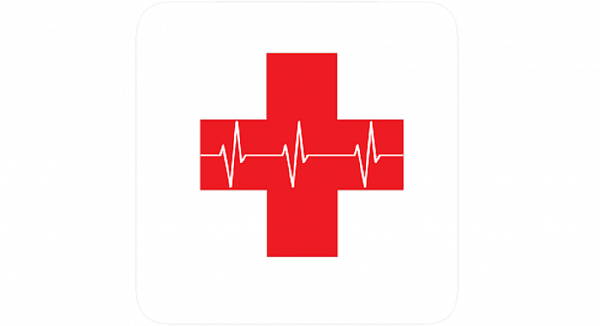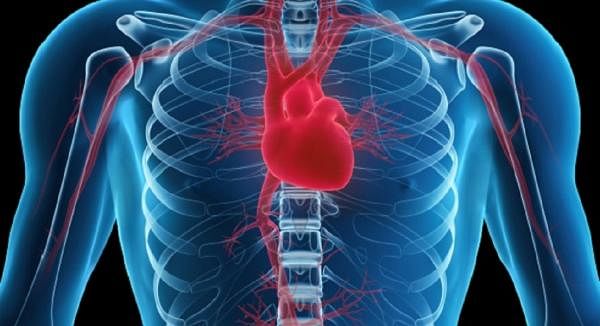Heart Disease - The Facts
Why you can trust Nutri Advanced Every article on our site is researched thoroughly by our team of highly qualified nutritionists. Find out more about our editorial process.
Every year, nearly 300,000 people in Britain die prematurely from a stroke or heart attack. One man in every four will have a heart attack before retirement age and a quarter of deaths occur in people under the age of 65. For women, heart disease and strokes are second only to cancer as the leading cause of death between the ages of 35 and 54. In the early 1900’s, heart disease was almost unheard of, yet in the last 60 years the incidence has rocketed to the point where it is occurring in younger and younger people and has now become the modern epidemic of our time.
There is nothing natural about dying from heart disease; our lifestyles, diets and the environment have changed radically in the last 60 years to bring on this modern epidemic. With cardiovascular health, prevention is key.
In this patient guide you will find out how you can incorporate a few key nutrients into your diet to help support a healthy heart.
Omega-3 & heart disease
Once unheard of, omega-3 has become a buzzword that for most people has become synonymous with good health. With scientifically proven benefits for many different aspects of health, from mood, memory and behavioural problems to joint and skin health, the known benefits of omega-3 fats are growing every day.
There is now a large amount of evidence to support the therapeutic use of omega-3-rich fish oil for most aspects of improved cardiovascular health. In particular, research has shown that consumption of fish oil is associated with a significant reduction in deaths from cardiac causes.
Omega-3 fats are found in nuts, seeds and oily fish, with the latter being associated with the most health benefits. Whilst making sure that you eat plenty of fish rich in omega-3 such as salmon, tuna and mackerel is important for good health, supplementing with a daily dose of high quality omega-3-rich fish oil is essential for achieving an optimum intake of omega-3.
How does fish oil affect cardiovascular health risk?
Cholesterol
Fish oil may help to lower levels of LDL (bad) cholesterol and simultaneously increase levels of HDL (good) cholesterol
Blood pressure
Fish oil has been shown to help reduce blood pressure and alleviate some of the common side effects of prescription drugs
Fibrinogen
Is an important risk factor for cardiovascular disease as it has a significant impact on the formation of blood clots. Studies have shown that fish oil helps to decrease the level of fibrinogen in the blood, thereby reducing the risk of blood clots
Triglycerides
Elevated triglycerides are known to be a major risk factor for cardiovascular disease. Studies have found fish oil to be a very effective natural treatment for reducing triglycerides
Heart attack
It is now accepted that there is a well-established link between a reduced risk of fatal and non-fatal heart attacks if the patient has a significant daily intake of fish oils
Magnesium for a healthy heart
Modern diets, containing high amounts of meat, dairy and refined foods and low amounts of vegetables, nuts, seeds and whole foods are typically deficient in magnesium. Could this be a contributing factor to why we are witnessing an epidemic of heart disease?
- There is now an established connection between a low level of magnesium and a high risk of heart disease
- Heart attack victims tend to have 30% less magnesium and a higher calcium level than normal
- Cardiovascular risk is higher in parts of the world where either the dietary intake of magnesium or the level of magnesium in the water is low
- One simple to make sure you’re getting enough, is to use a magnesium supplement, either a tablet or a high strength powder that is easily absorbed and well tolerated by the gastro-intestinal system.
Heart health-boosting garlic
For thousands of years now people have been aware of the beneficial properties of garlic. In fact, as far back as 2500 BC, records show that slaves involved in building the Egyptian pyramids were given garlic cloves daily to sustain their strength (so that’s how they did it!).
Garlic is known to contain around 200 biologically active compounds and has an important role to play in maintaining the health of the cardiovascular system; its beneficial effects include lowering cholesterol, protecting cholesterol from oxidation, protecting against blood clots and reducing the risk of a heart attack.
In one study, researchers looked at the cardiovascular effects of garlic and fish oil combined and found that this combination resulted in a substantial reduction in cholesterol, LDL cholesterol and blood fat levels.
Cardio-protective CoQ10
Numerous studies have now shown that CoQ10 has a remarkable ability to improve heart function. It has been shown to improve many different aspects of cardiovascular health and in particular can help to reduce oxidation damage in the arteries, thus protecting fats from becoming damaged and contributing to arterial blockages.
Studies have also found CoQ10 to be useful for helping to reduce blood pressure, improve symptoms of angina and increase energy levels.
CoQ10 can be made by the body, although not in sufficient amounts for optimum health and energy, thus supplementation is often recommended to achieve optimum levels. CoQ10 is much better absorbed in an oil-based form so make sure you choose supplements that state this on the label.
Antioxidant power of vitamin E
Best known for its role as a prominent antioxidant, vitamin E is an essential component in any cardiovascular health improvement programme. Vitamin E is a fat-soluble antioxidant and helps to protect fats such as cholesterol from being damaged within the arteries. Large- scale trials have found vitamin E significantly helps to reduce the risk of heart attacks in people who regularly take a daily preventative dose.
When choosing a vitamin E supplement make sure you consider that recent research has found that a naturally-occurring mixture of tocopherols offers more antioxidant protection than alpha- tocopherol alone.
Plant sterols and cholesterol
Plant sterols are fats found in plants and are often referred to as “phytosterols”. They are widely found in the plant kingdom and are consumed in the diet principally as minor components of vegetable oils. Phytosterols have long been known for their effectiveness in lowering low-density lipoprotein cholesterol (LDL-C), a risk factor in the development of coronary heart disease. Although plant sterols are consumed as part of the normal diet, the amount is not great enough to have a significant blood cholesterol lowering effect. Modern food processing and storage methods have also led to a reduction in dietary plant sterols. There is a lot of evidence to suggest that supplementation with plant sterols can reduce cholesterol levels substantially.
This website and its content is copyright of Nutri Advanced ©. All rights reserved. See our terms & conditions for more detail.
Nutri Advanced has a thorough research process and for any references included, each source is scrutinised beforehand. We aim to use the highest value source where possible, referencing peer-reviewed journals and official guidelines in the first instance before alternatives. You can learn more about how we ensure our content is accurate at time of publication on our editorial policy.
Most Popular Articles
-
7 Surprising Ways To Support Your Magnesium
If you are displaying signs of a magnesium deficiency, here are 7 ways to boost your magnesium levels that are easy to incorporate into your daily life. -
5 Best Vitamin C Supplements Picked By Our Experts
Learn more about the different types of vitamin C, the different benefits you get from different types, and what you get for spending more on a good supplement. -
Top 5 Vitamins For Energy And Tiredness Picked By Our Experts
The 5 best and most important vitamins for energy & tiredness including B vitamin food sources & best supplement forms for energy. -
Benefits of Myo-Inositol for Polycystic Ovary Syndrome (PCOS)
In this research review article, we take a closer look at a lesser-known natural compound called myo-inositol that has been found to have significant potential to improve many of the prevalent features of PCOS. -
Top 10 Reasons to Give Your Kids Omega-3
Read the top 10 reasons that kids should have plenty of Omega-3- an essential fatty acid- including for depression, brain function, sleep & reading/maths skills.













